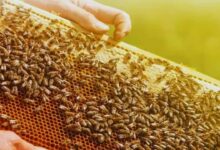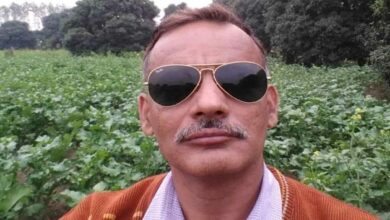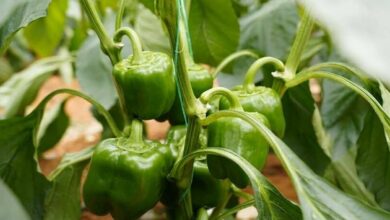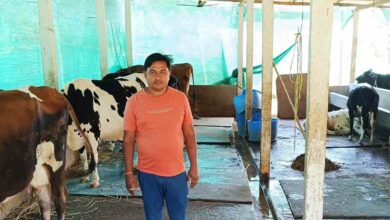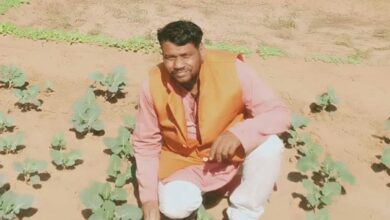Success Story: Veterinarian adopted natural farming, earned lakhs of rupees annually from mango farming
Success Story: As a veterinarian, Dr. Pradeep Bhimrao Pol’s life’s work has expanded beyond treating animals to repairing the planet itself. Dr. Pol is dedicated to restoring deteriorated soils and has adopted natural farming, which replenishes the soil and undoes the damage from years of chemical use. After enrolling in the Art of Living’s Sri Sri Natural Farming program in 2010, he started his life-changing adventure. He gained a fresh outlook on life as a result of this encounter, emphasizing the value of synchronizing with the cycles of nature.
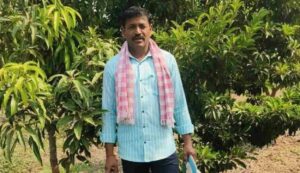
A Transition to Farming Without Chemicals
Dr. Pol’s transition to chemical-free farming has greatly enhanced his standard of living in addition to restoring the health of his land. In the past, his chemical fertilizer-managed mango gardens brought in Rs1.5 lakh a year, but the hefty input costs left him with just a little profit. His 500 Kesar mango trees, which are now grown only using natural techniques, produce Rs 3 lakh a year, proving the real advantages of sustainable agriculture.
Improving Soil Health and Increasing Revenue
This trip demonstrates the financial and environmental benefits of switching back to agricultural methods influenced by nature. To enhance his farm, he applies three different homemade biofertilizers: Dashparni Kadha, a fermented mixture of water, cow dung, and plant materials like neem, turmeric, and chili, stirred daily for 30 to 40 days; Gomutra, which is applied directly to the soil using a drip irrigation system; and Jivamrut, a natural liquid fertilizer made by combining water, cow dung, cow urine, and mud.
In only two years, he quadrupled the productivity of his property, reduced input expenses to almost nothing, and greatly raised his income. In contrast to the market pricing of Rs 60–70 per kilogram, his naturally ripened mangoes are being sold directly to clients for premium rates of Rs 100–150.
Crop Diversification: Going Beyond Mangoes
He increases his clientele, fosters trust, and posts his Natural Farming films on social media. Additionally, Dr. Pol has expanded his farm to include crops like wheat, chickpeas, pearl millet, and sorghum, which he eats at home and sells excess product for a premium.
He has also planted fruit trees including tamarind, guava, papaya, and coconut on the neighboring half-acre farm, which will provide him with fresh fruits all year long. His all-encompassing strategy has enhanced the products his farm offers and heightened community awareness of sustainable methods.
Supporting Native Custom: Pure Water and A2 Milk
Many villages have now adopted Dr. Pol’s advocacy for the use of A2 milk from Indigenous cows, such as the Khillari breed, which is consistent with his dedication to natural farming. In addition to transforming his farm, this switch to natural ways has improved the water quality in a nearby borewell, which is now free of chemical residues, demonstrating the harmony that has been returned to the soil.
Facilitating Workshops to Empower Farmers
Dr. Pradeep now shares his techniques via courses run by Art of Living’s Sri Sri Agriculture Trust, which encourages farmers to adopt natural farming practices. His story demonstrates how small-scale farmers may attain sustainability, health, and financial stability without the use of pesticides. This is a call to enable communities to prosper via natural farming, not simply a personal triumph.

